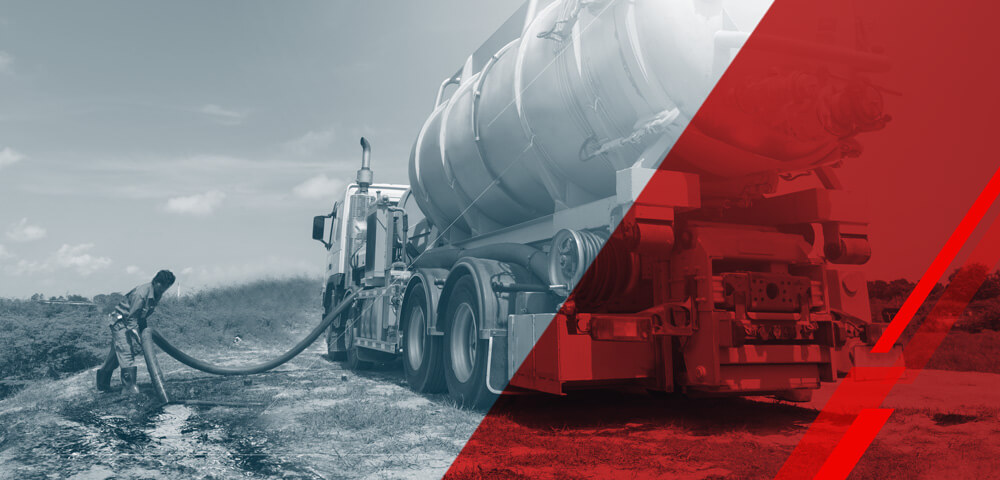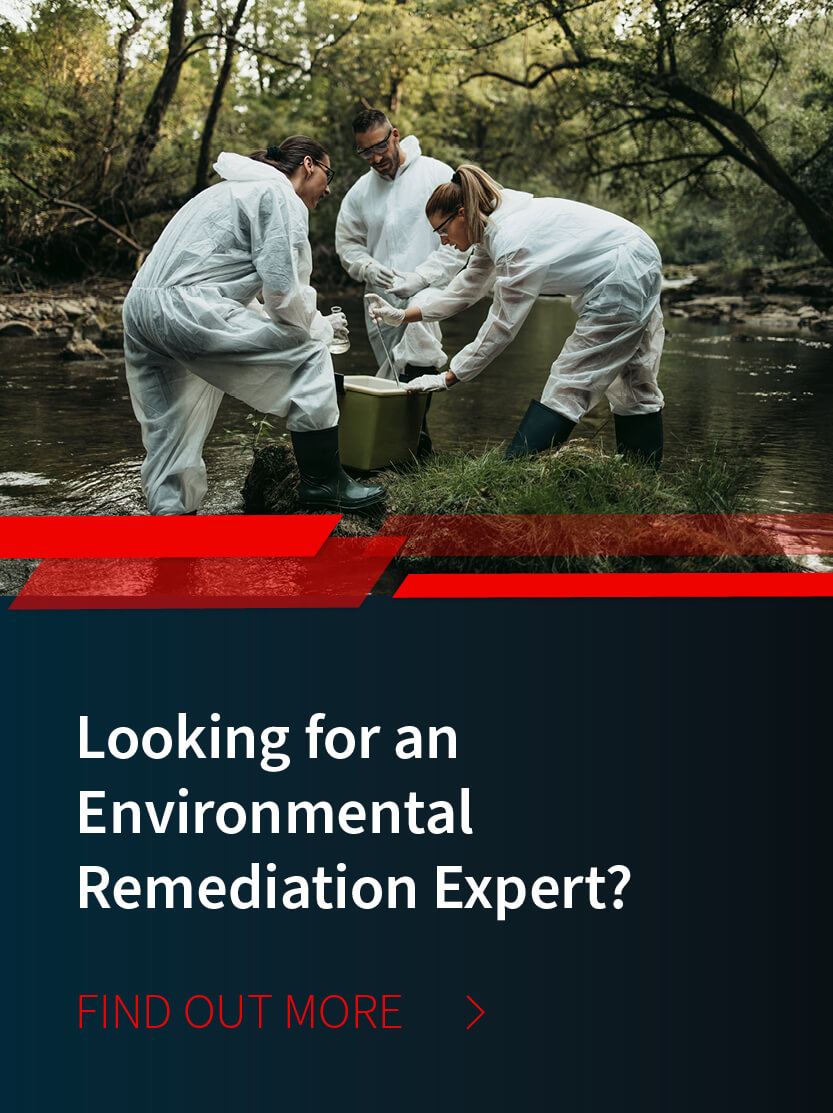
/ IN THIS BLOG
01 / Environmental Remediation and GAAP
Environmental remediation involves removing hazardous substances from surface water, groundwater, or soil. This is done to restore the environment and to help keep people safe. But it can be costly. So, it is important to make the right decision at tax time. Below is an overview of options and should not be used as financial or tax advice. Always consult with your accountant and/or tax attorney to determine the right solution for your business.
According to basic accounting information, in most cases, environmental remediation costs can be deducted as ordinary and reasonable business expenses. However, not all of these remediation costs are expensed. In some cases, environmental cleanup costs are capitalized and then depreciated over a number of years. It is important to consider your tax situation before starting an environmental remediation project. Also, for any completed projects, it is vital to work with an accountant when filing your taxes to ensure you deal with the costs correctly.
02 / What Is Capitalization?
Capitalization occurs when a business records a cost as a long-term asset rather than an expense. This asset is then depreciated over time. Costs are capitalized when they are expected to produce an economic benefit that extends for over a year or beyond a business' normal operating cycle. This type of capitalization is different from the capitalization associated with banking, such as when trying to obtain a loan in which your business's total debt and equity are considered.
03 / What Is Expensing?
When companies expense costs, they record them as normal operating costs instead of as capital investments. This means the costs are promptly deducted from the company's income in the accounting period in which the cost was incurred. To do this, it is necessary that your company does not benefit from the item beyond the accounting period in which it was purchased. If your company will benefit from the cost beyond one accounting period (typically a year), as discussed above, you may need to capitalize it. It must be capitalized and treated as an asset when it provides an economic benefit for a foreseeable period of time.
04 / Capitalization Examples
Suppose you purchase an asset that requires environmental cleanup costs of $30,000 due to contamination by the previous owner. These remediation costs would be counted as an improvement and capitalized instead of being expensed. The $30,000 would be listed on your balance sheet and depreciated over the life of the asset.
Remediation costs include more than the actual cleanup costs. They consist of costs beyond the actual remediation actions, such as preliminary assessments, site investigations, remedial investigations, and feasibility studies. It is best to discuss which costs to include with your accountant, such as direct and indirect capital costs, department fees and oversight costs, engineering costs, annual operation, maintenance, and monitoring costs, and costs for CPAs or independent auditors, among others.
05 / Depreciation Methods
Your accountant will choose a depreciation method based on your specific circumstances, and there are a number to choose from. The declining-balance method and the straight-line method are the most common methods used. The straight-line method of depreciation reduces the value of an asset over its useful life. Conversely, the double declining balance method depreciates an asset at twice the rate as the straight-line method. Therefore, it produces higher depreciation expenses in the early years of the asset. However, you and your accountant may decide to use one of the other depreciation methods, such as the unit of production method or the sum of the years' digits, among others. A tax professional will be able to advise you on the method most beneficial to your business.
06 / Which Environmental Remediation Costs Can Be Expensed Vs Capitalized?
Environmental remediation costs can be expensed if they are considered to be somewhat incidental. For example, asbestos encapsulation, environmental studies, surveys, investigations, engineering, or consulting and legal fees. In contrast, if the environmental remediation modifies the property to be used for a different purpose, prolongs its life, or increases its value, the remediation costs must be capitalized. You will generally need to capitalize remediation costs if they make up for depreciation, amortization, or depletion that you have been claiming on your taxes as well.
07 / Capitalization vs. Expensing of Environmental Remediation in a Nutshell
Deciding whether environmental cleanup costs should be expensed or capitalized is not always easy. Therefore, it is always best to consult with an accountant to be sure you make the correct choice. The IRS makes this clear in Section 198 of the Internal Revenue Code, which discusses this issue. It is clear that you can capitalize environmental remediation costs in some cases. But there are often rules governing when this can be done, and it is essential to follow them.
Additionally, capitalizing remediation costs is not always the best choice. For some small businesses, it could be advantageous to expense the costs. However, for larger businesses, investors may prefer to capitalize these costs. Investors often prefer capitalization because when you expense remediation costs, they are subtracted from profit statements. By contrast, if you capitalize the costs, they are added to the assets on the balance sheet. However, again, you should always consult with your account before deciding whether to expense or capitalize these costs.
08 / How Can I Get Started?
MCF has over 30 years of experience and expertise in helping organizations of many types manage their hazardous, universal, regulated medical, and/or industrial waste. This service extends to supplying solutions that maximize an organization's efficiencies, helping to minimize waste extraction and disposal costs, while reducing compliance risks.
MCF is familiar with both hazardous waste management and hazardous waste disposal and has local regulatory expertise. This enables our company to provide you with initial guidance for a wide variety of environmental compliance issues that can help you when you are unsure where you should begin.
Robert Losurdo
President, COO








